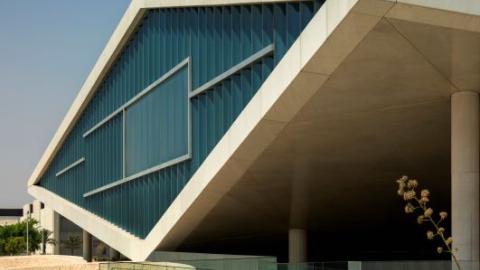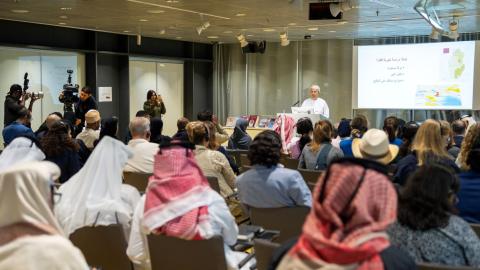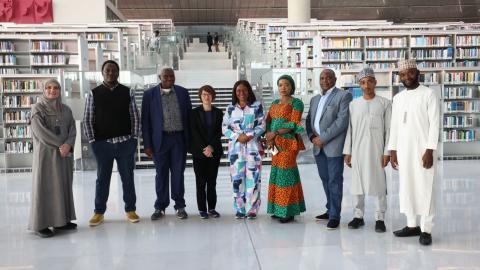
The International Federation of Library Associations and Institutions (IFLA) and the Preservation And Conservation (PAC) Center at Qatar National Library recently hosted a discussion with prominent global organizations and well-known experts to explore ways to protect and preserve Afghanistan’s heritage items. This session was organized to help coordinate efforts by all entities working together to secure Afghanistan’s documentary heritage that is under threat of trafficking or theft following the recent events in the country.
Representatives from various entities, including IFLA, the PAC Center at the Library, INTERPOL’s Works of Art, the International Council on Archives (ICA), Athar-project, the Smithsonian Institution, International Council of Museum (ICOM), Prince Claus Fund, ALIPH - International alliance for the protection of heritage in conflict areas, International Council of Museums and Sites (ICOMOS), the Sri Lanka PAC Center in charge of South Asia, the Middle East Librarians Association in USA (MELA), the Norwegian Institute in Rome and the National Library of China among others, participated in the discussion. Furthermore, ALIPH and Prince Claus Fund have been at the forefront of heritage preservation in Afghanistan over the past few years and have also worked with the Library to rehabilitate the cultural space in Beirut following the tragic blast in 2020.
The meeting addressed the state of documentary cultural heritage in Afghanistan, concerns and priorities, past projects on cultural heritage, trafficking of documentary cultural heritage, and possible actions to safeguard Afghanistan’s heritage.
As an IFLA PAC Regional Center, the Library is committed to guarding and preserving heritage items from the region and beyond. On the occasion, Stephane J. Ipert, Director of Distinctive Collections at the Library said, “We are deeply concerned by the recent events that impacted our colleagues, their families and the people of Afghanistan. We are aware of Afghanistan’s rich documentary cultural heritage and believe it will be devastating to lose any of its heritage items due to the ongoing events. Hence, we partnered with IFLA to conduct an urgent meeting with associated entities around the world to find solutions and explore strategies that could safeguard the country’s heritage against theft and trafficking.”
The meeting aimed to coordinate with stakeholders concerned with documentary cultural heritage, both on the ground and representing international organizations, to discuss the situation, share information and explore possible points of action. One of the primary concerns revolved around the National Archives of Afghanistan’s website being shut down, resulting in the loss of already scarce digitized materials. Following the meeting, a small task force of experts and institutions concerned with counter trafficking and theft, have already started working on an action plan and next steps.
All participants were driven by a common purpose to safeguard Afghanistan’s heritage and discussed critical solutions that could help them achieve their goals. These solutions included identifying high-risk and fragile documents, cataloging strategies, closely monitoring social media platforms, and digitizing heritage material. Educating and training land border control and customs officers emerged as a critical, effective solution identified by all participants.
The meeting was the first in a series of planned discussions. The Library will continue to coordinate and work with IFLA and other global stakeholders to safeguard Afghanistan’s history and help future generations connect with the past and shape their future.







